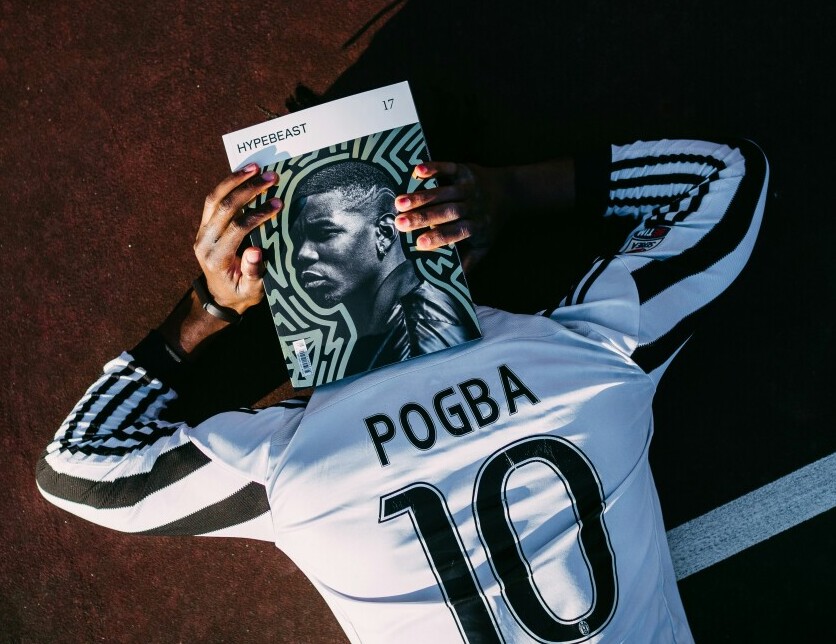
The midfield has always been the beating heart of any football team, but how midfielders used to play the game has changed a lot before Paul Pogba arrived on the scene. Players like Xavi from Barcelona and Andrea Pirlo at AC Milan and Juventus used to embody a traditional style. They were all about technique, reading the game, and letting the ball do the work. No crazy dribbling runs or acrobatic displays, just clean, precise playmaking.
Back in the day, midfielders had pretty distinct roles on the pitch – defensive-minded or offensive, rarely combining the two. Think of the classic ‘number 10’, who was all about creating goals, and then there was the ‘holding midfielder’, more like the team’s shield against attacks. Combining these roles was rare and when it happened, it often didn’t stick.
For a long time, the midfield was ruled by players with specific attributes – tall, powerful for the defensive duties or short, agile, and nippy if they were going to unlock defenses. This rigid blueprint presented challenges, particularly against top-tier opponents who were quick at finding loopholes in these predictable setups.
However, there were certainly precursors to a shift. Bastian Schweinsteiger and Frank Lampard, for instance, brought a new attacking dimension from deep. They weren’t tied down to one strict role on the field, mixing it up instead, which hinted at what was coming next. Yet, their approach wasn’t as revolutionary when compared to Pogba’s later transformation.
Midfield roles at this time were like puzzle pieces that needed to fit together in a very specific way. Any deviation could disrupt team balance and tactics. But let’s be real, with such a strict segregation of roles, creativity had its limits. What Pogba would bring was a new chapter for midfielders, pushing beyond these set boundaries and creating a more holistic, versatile expectation of what a midfielder could achieve.
Paul Pogba: An Introduction to the Maverick Midfielder

Paul Pogba, a name that’s become synonymous with flair, technique, and unpredictability in world football. His journey is like a perfect blend of raw talent honed into a formidable force on the pitch. Born in Lagny-sur-Marne, France, Pogba caught the football bug early and pursued it passionately, with that fiery energy landing him at some of the world’s biggest clubs, including Juventus and Manchester United.
Pogba debuted in senior football with Manchester United before making a name for himself in Serie A with Juventus. At Juventus, his prodigious talent was undeniable, combining physical strength with delicate ball control and a knack for the unexpected. Returning to Manchester United for a then-world record transfer fee was not just about the prodigal son coming home but about redefining what a midfielder could achieve.
His skill set defies pigeonholing. Whether it’s curling a breathtaking long-range strike, threading a needle-like pass through a stubborn defense, or a towering defensive header at a crucial moment, Pogba does it all with panache. He’s not just all brawn and muscle; there’s a cerebral element to his game, reading and influencing the play like a seasoned chess master.
Pogba’s style of play isn’t just about his individual skills; it’s how he balances team dynamics. On any given day, he can be the team’s engine, orchestrating attacks, or its wall, snuffing out opposition threats. But what really sets Pogba apart is his charisma and flair. He brings personality to the field, creating magic with a smile on his face, endearing himself to fans worldwide.
His impact goes beyond what’s visible during the 90 minutes. Pogba’s work ethic and dedication inspire younger players to emulate his multi-dimensional style, tearing down old-school boundaries. Off the field, his presence in campaigns supporting equality and justice emphasizes his role as a leader not just in sport, but in life. The Maverick Midfielder, indeed.
Pogba’s Tactical Influence: A Game-Changer in the Midfield

Paul Pogba’s influence on the pitch isn’t something you notice right away; it’s more like an evolving masterpiece that unfolds throughout the match. His playing style weds elegance with brute strength, creating a new template for midfielders. Opponents can’t predict his next move, and that’s a big part of his genius.
Pogba’s ability to transition from defense to attack is like flipping a switch. One moment he’s breaking up play, the next he’s spearheading a counterattack, with a turn of speed and vision that leaves defenders in his wake. His knack for finding space and creating scoring opportunities for himself and teammates alike is exceptional. This fluidity is why coaches value him so highly; he’s not tied down to one role.
Games showcase Pogba’s knack for hitting pinpoint long balls or making ground-breaking dribbles that split defenses open. Take, for example, his crucial interventions in games like the Manchester derby or European ties where his precise passes have led to crucial goals. The tactical setup often revolves around leveraging Pogba’s strengths to destabilize well-organized teams.
His flair and unpredictability mix with his technical ability to offer something unique—an element of surprise. Pogba thrives on breaking typical gameplay patterns, making it almost impossible for opponents to devise a foolproof plan against him. Managers and teams adjust their tactical plans with him in mind, reflecting his influence on team dynamics and strategies.
More than just skills and performances, Pogba stimulates an evolution in team mentality. His presence elevates his teammates’ play, pushing them to adapt and respond creatively. He’s a catalyst for more expansive and adventurous approaches in midfield, inspiring others to broaden their footballing horizons. Pogba has definitely set a precedent for what a multifaceted midfielder can achieve.
Transformative Legacy: Pogba’s Impact on Future Midfield Generations

Paul Pogba’s influence extends far beyond his immediate performances. He’s laid down a blueprint that emerging midfielders are now taking cues from, creating a ripple effect that’ll shape the future of football. Pogba’s blend of flair and functionality has inspired a new generation to embrace a more holistic style of play.
Today’s young players don’t just want to excel in one aspect of midfield play; they aim to be all-rounders, and that’s got a lot to do with Pogba. They see him commanding the pitch, breaking expectations, and they’re eager to follow. Coaches at academies hold up Pogba’s style as a case study in achieving balance between offensive and defensive duties without compromising individuality.
Looking forward, we can expect midfield roles to become increasingly versatile, influenced by Pogba’s example. Teams are scouting for ‘complete midfielders’ who can bring Pogba-like dynamism to the team. They’ll be looking for players who can pass, tackle, score, and inspire all at once, and the pressure is on young talents to rise to the challenge.
Insight from professionals offers a clear view of Pogba’s impact. Coaches acknowledge how his style demands a rethink of traditional tactics, urging a more fluid and flexible game plan. Other players have noted the shift too, often highlighting Pogba as a role model when discussing their evolution and ambitions.
Pogba’s legacy will likely be his enduring influence on the psychological and tactical landscape of football, embodying change and innovation. His career path, marked by unique skills and charismatic leadership, showcases not just what he can achieve but what the entire sport can aspire to evolve into.
